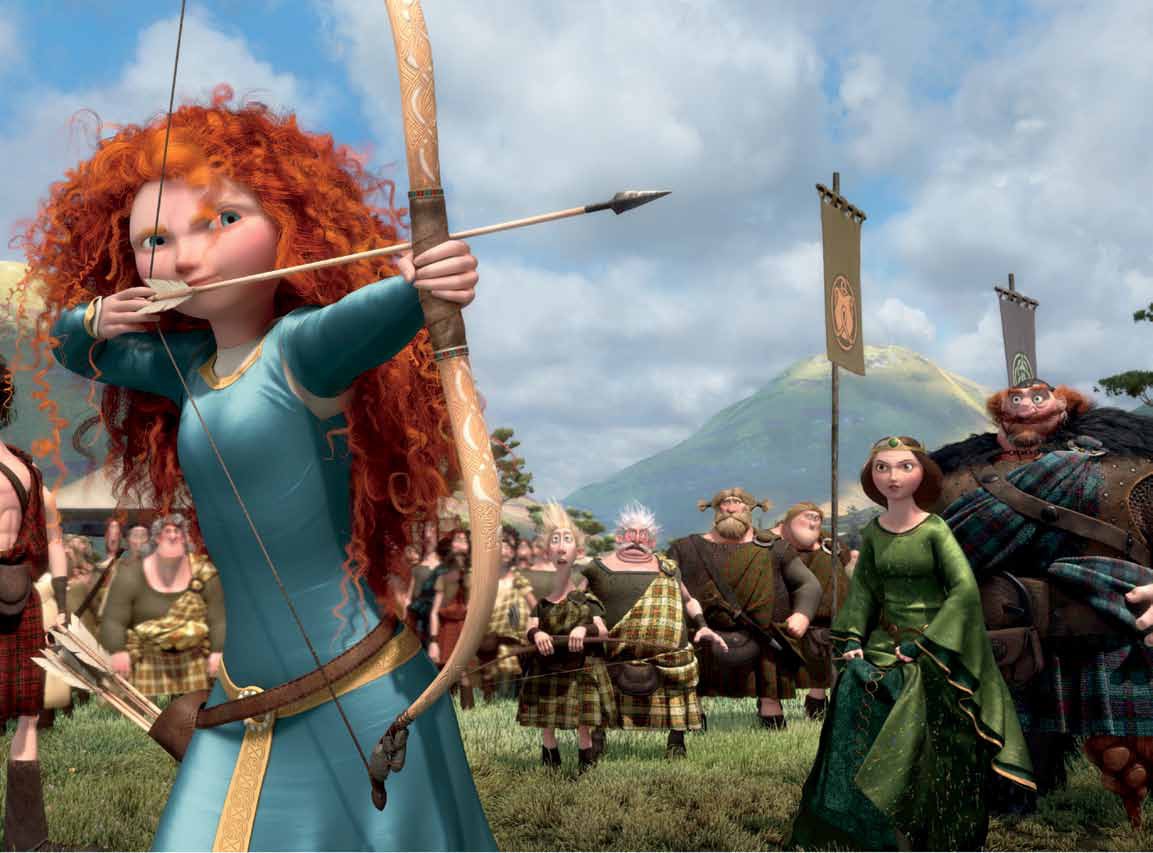 For a company unaccustomed to anything but bountiful praise and spectacular box office, 2011 must have been a little tough for Pixar. This is a relative term: while "Cars 2" might have had the company's lowest ever admissions domestically (and second lowest gross), it performed well overseas, coming in as their sixth most successful film worldwide. But it's not the financial takings that must have been breaking hearts over at the animation giant's Emeryville headquarters.
For a company unaccustomed to anything but bountiful praise and spectacular box office, 2011 must have been a little tough for Pixar. This is a relative term: while "Cars 2" might have had the company's lowest ever admissions domestically (and second lowest gross), it performed well overseas, coming in as their sixth most successful film worldwide. But it's not the financial takings that must have been breaking hearts over at the animation giant's Emeryville headquarters.
Instead, it's been the stream of bad publicity around the studio that must have cut deeper. "Cars 2" was by far their worst-reviewed film to date, and for the first time since the inception of the category a decade ago, they failed to get a nomination for Best Animated Feature at the Academy Awards, a prize that they've won six out of ten times. Frequent criticism posited that the film was greenlit mainly because of the mammoth merchandising haul it brings in, rather than because of any creative desire to follow the four-wheeled characters from John Lasseter's original.
But that's far from the only criticism that's been flung at the company of late. Continued questioning of why the company had never had a female protagonist could have been put aside by the crimson-haired lead of this summer's "Brave," but the removal of director Brenda Chapman from the helm of the picture certainly didn't help impressions that Pixar was something of a boys' club. And the troubles of the repertory of directors don't end there: while Brad Bird made a hugely successful live action debut with "Mission: Impossible — Ghost Protocol," and now finds himself firmly on the A-list, his colleague Andrew Stanton ("Finding Nemo," "WALL-E") hasn't had it so easy.
Stanton is the director of parent company Disney's great hope for 2012, "John Carter," but even weeks ahead of its release, the film has been subject to more than one article discussing budget overruns and poor tracking, many of which laid the blame at the director's door. According to The Daily Beast, he's a perfectionist, whose reshoots and reshaping of the film pushed the budget way past what it should be, something denied by Stanton of late.
All this means that more than usual seems to be riding on the success of "Brave" when it hits this summer. A trailer has just arrived for the film on Apple, and Disney have taken the unusual approach of just letting a major scene from the film play out in clip form, so we get a better sense of how the picture is likely to work. The scene involves princess Merida (Kelly Macdonald) entering an archery competition in order to ward off three unattractive suitors, and there's lots to like — it's well directed, there's a few good laughs, Patrick Doyle's score sounds strong, and there's the promise of a solid emotional backbone.
Do we have reservations? Sure. The echoes of DreamWorks Animation's "How To Train Your Dragon" are unavoidable, and the humor seems a little more slapstick-leaning than what we've become used to, particularly given that we're dealing with relatively realistic human characters, rather than monsters or robots. But even so, there are more pleasures to be found in 150 seconds here than in nearly two hours of "Cars 2."
But the reality is, we're at something of a turning point for Pixar. The company are moving towards producing two movies a year, leading to an obvious watering down of their focus, and with Bird and Stanton moving into the live-action world (the latter showing no real sign of returning to the company), and Lasseter overseeing Disney's animated films as well, that first generation of directors at the company are being drawn away, without any obvious successors having emerged. The company seem to be focusing on sequels more and more ("Brave" will be the only original film from Pixar in a five-year span, with "Toy Story 3" and "Cars 2" preceding, and "Monsters University" following). When you add to that the death last year of Pixar's godfather, Steve Jobs, it's hard not to feel that we're nearing the end of the company's first act.
That being said, it's not exactly worth being alarmed about. The main reason that Pixar have come into criticism of late is that they've set such ludicrously high standards for themselves. If you told any other studio that their least successful film to date would take in more than $500 million worldwide, plus even more in merchandising, they'd take that in a heartbeat. One coolly-received film does not mean that Pixar are abandoning their commitment to story, and "Brave" certainly looks to be a return to form at this stage. "Cars 2" may mean that they're no longer bulletproof, but we can't think of another company that earns our trust sight unseen…at least for now. But if "Brave" turns out to be a miss? Then we start to worry a little.

